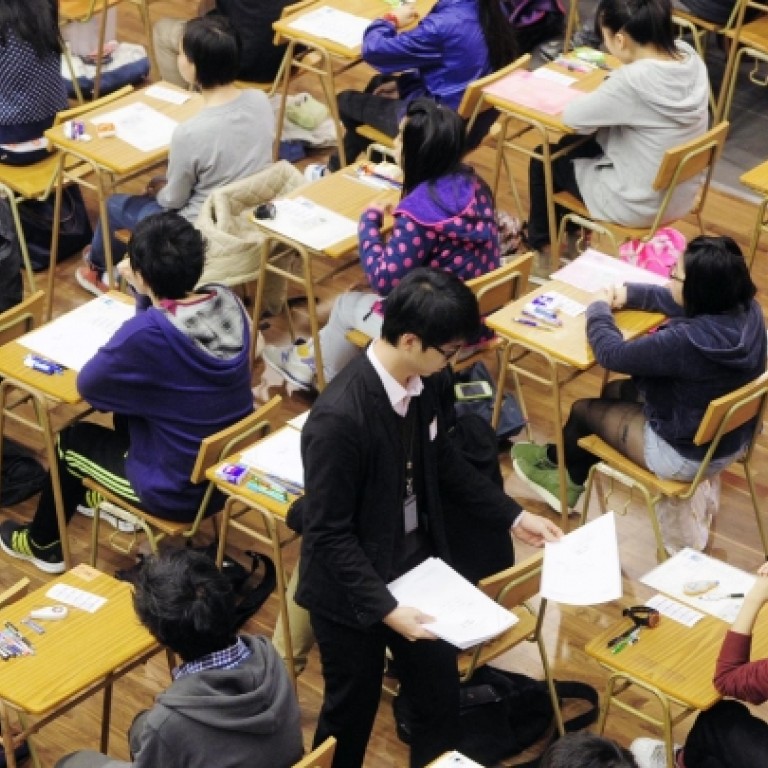
Insight: Good grades are not everything
There is no getting away from the anxiety of tearing open the envelope containing your exam results. This is the moment when the dreams of teenagers seem to be realised or dashed.
Some 71,000 Secondary Six students will learn today if they have made the grade in the second sitting of the new Hong Kong Diploma of Secondary Education (HKDSE) exam - if success is measured by qualifying for one of 15,000 publicly-funded degree places on offer in the city.
The old academic structure used examinations at the end of Secondary Five to ruthlessly sift the high performers from the rest, allowing only about one third to take the final Hong Kong Advanced Level Examination.
Now we have a system that aims to cater for all students to the end of senior secondary schooling, and an assessment that banishes the old pass-fail barrier. The HKDSE records knowledge and competencies across five levels of performance in a so-called standards referenced reporting system.
But today, all that will matter for these students will be the mix of magic numbers, from Level 5 (peppered with one or two stars to denote the very highest performance) to Level 1, and the hope that most of their subjects will be at least Level 4. Those are likely to be the grades needed to finish this particular stage of the education race within the top 15,000.
A large hurdle will be making sure they have achieved the minimum Level 3 in Chinese and English language, and Level 2 in Mathematics and Liberal Studies, to qualify for undergraduate study - those languages being a stumbling block for many.
Last year, some 26,515 met that threshold. The results matter, of course, but they are not everything. Universities should be considering other factors in their selection, including the Student Learning Profile. This is the students' qualitative record of achievement and reflection on their learning journey.
For the student, there are many pathways to the future beyond the traditional university place. For those achieving a minimum five subjects at Level 2, this is likely to be through sub degrees, including associate degrees and higher diplomas.
Those not meeting such grades can enrol in Yi Jin and foundation diplomas which, after one year, can qualify them for the sub-degree route and on to the third year of a local undergraduate degree. If they have the will, they can get that degree in the end.
Some will go abroad, where universities can be more flexible over the Chinese language requirements and the total number of subjects needed for admissions.
It is easy for a columnist to ask a teenager to keep examinations in perspective. But as someone who has done plenty of recruiting in the past, all I can say is that they really aren't the be all and end all.
The important thing today is not to give up hope. Those opening their results need to think hard about what they would really like to be good at and the knowledge and skills they need to get there, rather than the status of the institution they want to go to.
From that perspective, the grades become less important. There are many opportunities out there that don't require 5*5*555, if you have the wherewithal to chase them.

